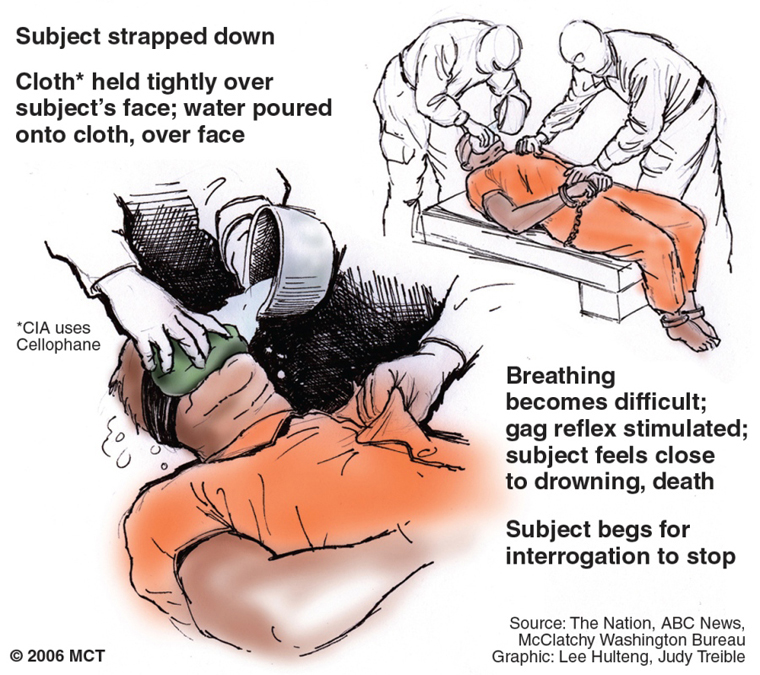
Words have meaning rooted in social custom, usage and culture, therefore their meaning shifts and alters as culture evolves. Before the modern age this metamorphosis of language occurred organically as people traveled and interacted with others, bringing new concepts and words along with them.
Once the communication age began, the introduction of new words and meanings accelerated, and we are now in an age of such rapid globalization that through the internet and entertainment industry, language itself has become global. Whether this transformation will result in a newly unified humanity uniquely capable of cooperating to solve the world’s most difficult problems, time will tell.
Meanwhile new vocabulary words and phrases are added daily, and not all of them intended to illuminate or enlighten, but to obfuscate and confuse. Among the very worst of these new phrases is “water boarding.” Despite the genial mental image of happy teens pulled by a swift motorboat and skimming joyfully along the smooth surface of a cool country lake, water boarding has nothing whatsoever to do with pleasure or sport. Water boarding is a form of torture.
As if our government’s dissemblance surrounding its use of water boarding is not cynical enough, when pressed to define it, officials call it “simulated” drowning. Drowning, as we all know, is choking and suffocation due to the inhalation of water instead of air. The use of the word “simulated” would seem to add some sort of benign quality, as if it’s just pretend and nothing at all to worry about, like simulated bullet wounds we watch explode on TV and in the movies. But in this case, “simulated” is not an accurate description. Water boarding is a torture method used to choke and suffocate a restrained suspect lying face-up on a wooden board by placing a cloth over the suspect’s head and continuously soaking it with water during interrogation. Just before the suspect inhales too much water, cannot breathe and dies, the cloth is removed and the suspect is allowed to cough up whatever can be coughed up and “catch a breath.” Questions are asked, and if the answers are not sufficient, the water board torture begins anew. This procedure is repeated until the suspect “confesses.”
Imagine going through this. Think about the terror it instills: the constant struggle to breathe but finding no air available, the helpless restraint of arms and legs, the choking, coughing, gasping and panic. Now think about going through this for an hour, or even two or more, for days at a stretch, never knowing if the cloth will be removed in time. At some moment, death must seem a better choice. At that point, false confession is a mere trifle even the best of us would offer.
Those who oppose torture understand that confessions and information given under such treatment is often false and useless. The Geneva Convention language forbidding torture does not mention water boarding – there is no need for details. Call it what you will, torture by any other name is torture, and condemns not only suspects, but also those who employ it. This particular evil of water boarding begins by employing words falsely to deflect our gaze from the truth of it. But we are not deceived; water boarding is torture, pure and simple.